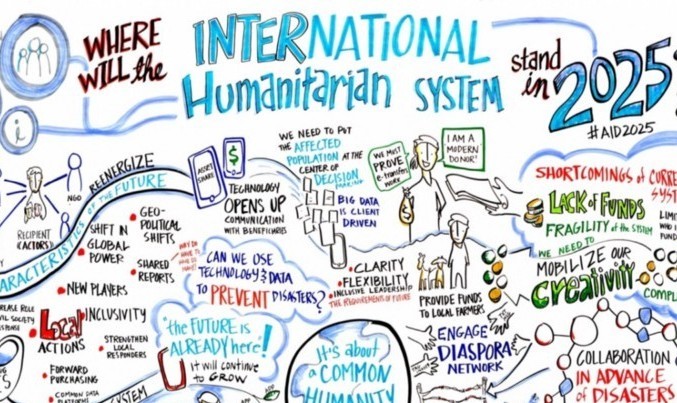Researchers have identified new ways in which funding from foundations changes how journalists carry out their work. The research, entitled Foundation Funding and the Boundaries of Journalism is part of a wider study that has been looking at the state of humanitarian journalism since 2014
A variety of foundations such as the Bill & Melinda Gates Foundation, and the UN Foundation, as well as intermediaries and non-profit news organisations were represented in the 74 interviews for the research. Speaking to its co-author, Martin Scott, he explains what drove the focus on foundation funding:
“We find that there are remarkably few news organisations who regularly cover humanitarian affairs, and those who do are supported by governments or foundations. We wanted to find out what happens to an area of journalism so heavily dependent on foundation funding.”
Whilst previous literature in this area has tended to concentrate on potential threats to journalistic autonomy, Scott and his co-authors found this ‘misses the more important point’ about how the nature of journalism changes as a result of foundation funding. This is important because it suggests that foundations are changing the role that journalists play in democracy. In this case of non-profit international news, foundations direct journalism towards outcome-oriented, explanatory journalism in a small number of niche subject areas, says Scott.
Key findings
For news organisations to acquire and sustain foundation funding they must often invest a significant amount of resources. From researching where is best to apply for funding, to building multiple relationships and then completing applications, the process is lengthy and incurs high administrative costs. There have been three key consequences of this:
- Unintended plurality of big outlets
There has been an inadvertent concentration of funding towards a smaller number of outlets comprised of the largest well-established news titles, such as the Guardian, Thomson Reuters and Pulitzer Centre. According to the research, these organisations are, “more likely to have sufficient capacity to absorb the administrative and marketing activities associated with foundation funding.” The report adds: “One foundation representative explained that they chose to regularly support a large non-profit news outlet because, ‘we’ve worked together for many years [and] … they already have the infrastructure’”.
This favouring of larger and established news organisations creates significant barriers for potential new entrants.
- Changes in journalistic practice
Interviewees for the research claimed that within smaller non-profit news organisations, marketing and administrative tasks were more likely to be integrated into the job descriptions of editorial staff. From managing budgets to running projects, there is an expansion in the kinds of activities journalists are required to carry out. Those who resist such an ‘expansion of the boundaries of professional practice’ were found to be less likely to remain journalists, as they were less likely to acquire foundation funding.
- Specialist humanitarian news outlets struggle to survive
Smaller news organisations lack the capacity to build informal relationships with foundations, as they struggle with the necessary time and resources. Noted in the research is the case of Humanosphere which closed in June 2017. It’s editor-in-chief at the time claimed that, “one reason why…it has been very difficult to get funding [is]… I am a journalist, so I am temperamentally unsuited, almost diametrically unsuited for sales.” Other foundation-dependent news organisation such as News Deeply have also faced dramatic downsizing.
Recommendations
Scott says the implications of the research are relatively straightforward: “It’s about broadening the kinds of issues that we discuss, and ensuring journalists and foundations are mindful of these issues when they enter into a partnership. It’s not just about protecting autonomy.” He suggests foundations should:
- Be particularly conscious of the additional marketing and other administrative requirements necessary for acquiring and maintaining foundation funding. When foundations give support to journalism, they should consider the indirect costs associated with getting grants in the first place. They must address how they currently set up their funding - processes are often set up with good intentions but incur hidden costs.
- Be actively aware of the consequences of unintentionally neglecting smaller news organisations.
- Question whether they are funding the same organisations repeatedly, in order to avoid a concentration of funding in a small number of outlets.
Ultimately, Scott believes perhaps the only way to resolve this crisis facing humanitarian news is to encourage audiences to pay directly for journalism they trust and value.











